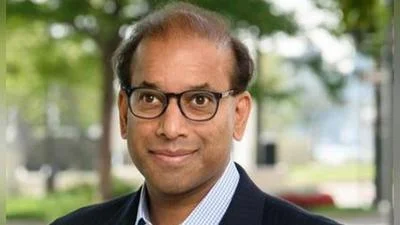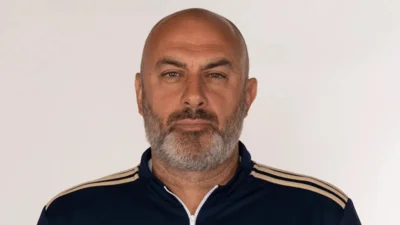University of Detroit Mercy issued the following announcement.
It took three years of work, but what has happened since Joyce Choi published a research paper on a disease she originally knew little about, could be life changing — for her and people half a world away.
Choi’s paper on Chagas disease, a scourge of many rural areas in Latin America, was published in the journal BIOS, a science quarterly in circulation since 1930. The paper was the result of research directed by the University of Detroit Mercy College of Engineering and Science’s Director of Sustainability and Associate Professor of Biology Victor Carmona, starting when Choi was a sophomore at Detroit Mercy and finally appearing in print during her first year in graduate school.
It all started with a chance meeting three years ago. Choi came to Detroit Mercy with plans to attend dental school, but found she was more passionate about the environment, so she looked into the Biology department to explore more options. She was told to seek out Carmona, who had recently been hired by the University.
“I think I just walked into the Biology office and said, ‘Hey, I want to do environmental research, what do I do?’ ” Choi said. “Dr. Carmona was literally unpacking boxes in his office and we had, like, a two-hour conversation the first time we met. And I just jumped head first into the research.”
Carmona has been doing research on Chagas disease in El Salvador for years. Chagas disease is caused by a parasite that’s transmitted to humans by an insect found mainly in rural areas of Latin America.
“The protozoan parasite is native to the American tropics and it’s transmitted between mammal hosts via a Triatomine bug,” Carmona said. “The parasite likes to multiply inside your muscular cells, it especially likes the cells surrounding your heart, and eventually weakens the organ enough to bring on heart disease. Approximately 80% of the Chagas cases will result in cardiomyopathy.”
The Ministry of Health in El Salvador has collected a substantial amount of data on Triatomine bugs, but it doesn’t have enough research scientists to analyze patterns in the field data. In El Salvador, which is about the size of New Jersey, only one university out of 33 in the country has a Biology Department. That’s where Carmona and his research students come in.
Choi was able to analyze patterns in a national data-set curated by the Ministry of Health in El Salvador and characterize significant links between poverty and land use change, which suggest broader participation is needed to mitigate neglected tropical diseases like Chagas in developing countries like El Salvador.
“Previous research Dr. Carmona had done with partnering institutes found that the shape, color and outward appearance of Triatomine bugs responded to changes in elevation and land use, which was really cool,” Choi said. “My paper’s focus was to explore how changes in poverty indices connected to changes in land use, like coffee plantations, sugarcane fields, forest cover, etc. We also looked at other demographic variables, such as male-to-female ratios across municipalities, with the idea of exploring both ecological and socio-demographic considerations. That’s where that multidisciplinary approach really comes through in our paper.”
As excited as Choi was to be the lead author on her first research publication, even more rewarding was the fact the Ministry of Health in El Salvador plans to use Choi’s conclusions to shape policy to help mitigate the disease.
“Dr. Carmona informed me that one of our Salvadoran co-authors forwarded our publication to a colleague at the Salvadoran Ministry of Health and they replied, ‘This is really interesting research, I want to bring this to my other colleagues and talk about addressing some of your findings in our future decisions.’ That’s what’s really awesome to me. It really shows how integrative research can have a big impact outside of academia’s own bubble. I think integrative research can easily inform other industries and fields. A lot of people have been using integrative science as a way to improve decision-making, so to see it actually happening with our work is just so, so cool.”
But this latest step has been more than she could have ever thought.
“It’s still so surreal,” Choi said. “I think it took a second for me to process that all at first. Knowing that my research paper isn’t just going to be on the shelf in the back of a university library, but actually out there changing the way administrators are thinking about policy making and decisions that affect the health of people who are living in a country that really wants to use science to improve its healthcare system, that’s just so surreal to me.”
Choi graduated from Detroit Mercy in 2019 with a degree in Biology and is currently working on her Master of Science degree in Ecosystem Science and Management in Conservation Ecology at the University of Michigan.
“I think that the year long peer-review process just showcases how dedicated Joyce is in becoming a research scientist,” Carmona said. “She’s walking the talk, by learning how to test ideas and make contributions to science. She cultivated an opportunity to challenge old concepts and brave new mistakes. That’s a very important lesson for a scientist, because we learn by improving on our most wonderful blunders.
“Showing Joyce that we were purposefully pushing boundaries and trying to learn by making mistakes, was integral to her formative experience,” Carmona continued. “By the time she finished her undergraduate degree, she was like, ‘I get it, you have to venture into the unknown and celebrate critique if you want to get better at it.’ It was great to see Joyce take that process and make it her own.”
Experience with the peer-review process has also helped Choi advance in her academic career.
“When she started her master’s program, she told me she was the only person who had a publication under their belt,” Carmona said. “It was very clear to Joyce, that the way she approached problem solving was very different than her peers. Students who haven’t had that enriching research experience tend to play it safe, only to quickly discover that science favors innovation above memorization.”
Choi is thankful for her time at Detroit Mercy and working with Carmona.
“He always encouraged me to think about the bigger picture of what we were doing and how it could empower community partners,” Choi said. “He encouraged me to always look at the integrative impact of research rather than just thinking about getting a project published. It was a reminder to think about our research scope in light of environmental justice. That was a big thing for me because I don’t think I was exposed enough to that in my natural sciences curricula.”
Choi hopes to pursue a doctoral degree after she completes her master’s degree and using her formation as a research scientist to advance the common good.
“I think one of the key takeaways from my research experience at Detroit Mercy was realizing you can use your science degree as a tool for social and environmental justice,” Choi said. “That’s really cool to me because normally people reduce community service to volunteerism, but charity is not justice. Being able to use your degree experience to empower undergraduate students, some from those marginalized communities where research is conducted, to cultivate real change through scientific inquiry and collaboration, is more than just transformative, it’s liberating.”
Original source can be found here.





 Alerts Sign-up
Alerts Sign-up